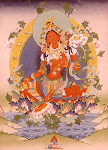Understanding Iraq...
Iraq looms ever present in the news.Obviously after a while, all the suicide bombings leave one numb. Having lived through the Vietnam war, there are some echoes of that era, but 9/11 has also changed how we view this war.
At any rate one can make some attempt to figure this place out, how we got stuck to this tar baby, and how we might possibly get unstuck, hopefully someday. In this light I can highly recommend 2 books I have read, one of them appropiately entitled Understanding Iraq. The full title is:Understanding Iraq: The Whole Sweep of Iraqi History, of Outside Rule from Genghis Khan to the Ottoman Turks to the British Mandate to the American Occupation by William R. Polk.
Here is the Kirkus review of Polks book: "
Kirkus Reviews
A supremely helpful companion to, and gloss on, the news from Iraq-news that, to all appearances, we'll be reading for years to come. Former State Department advisor Polk (History/Univ. of Chicago; Polk's Folly: An American Family History, 2000), who has lived in Iraq (and speaks fluent Arabic), provides a swiftly moving overview of Iraqi history from the dawn of Sumerian civilization to the present turmoil. He's concerned with finding continuities over long periods of time, noting, for instance, that southern Iraq has enjoyed "a tradition of revolt against government and landlords" dating back at least 12 centuries, while the powerful capital and its dynasts have always lorded it over the countryside. One thing is certain, he says: "Over its long history, the one group that has seldom 'owned Iraq' was its people." That is in part because Iraq has throughout that long history been ruled by outsiders, whether Persians or Mongols or Ottomans-or, more recently, Britain and the United States, both of which, by Polk's account, have made a terrible hash of things, and both of which have given the average Iraqi much reason to believe "in what might be called the James Bond school of politics," whereby shadowy agencies and governments are really in charge of things, presumably because Iraq has so much oil. Saddam Hussein knew how to exploit that sentiment, and so, Polk avers, do the insurgents who are making life so difficult for the American occupiers today. Polk adds that Iraq has another long tradition, a system of neighborhood self-government that tends to mistrust larger authority. The British dismantled the system in the 1930s, not trusting the decentralization of power, whereas under BaathParty rule the local councils were co-opted. The Americans have done no better than either, Polk argues: "They focused on the rulers and neglected the people." Learned, constantly engaging and full of pointed lessons for those wondering why the war has not ended, peace has not come, and no one in Iraq save Halliburton seems liberated."
One of the things I took away from Polks book is that the Sunnis, the Shia and the Kurds, have been living in the Mesopotamian area now called Iraq, for some 900 years now. To think an American occupation of 4, 6, even 12 years, is going to make these groups totally happy in their dealings with each other is to live in a Neo-con pipe dream.
In other words if they have had 900 years of dealing with each other, then American intervention is a blip on the cultural radar screen there. It is foolish to think we can untangle and set anew all these karmic undercurrents or that American free-market culture is the answer to their problems. Indeed our being there has attracted all the Islamic hard line extremists from varying regions that only add to Iraqs woes.
The second book: A Fist in the Hornet's Nest: On the Ground in Baghdad Before, During, and After the War, by Richard Engel, is one I read about a year ago.
Here is the Kirkus review:"Hustling young freelance journalist Engel, now an NBC regular, explains how he managed to stay put in Baghdad and cover the March 2003 invasion for American TV after the major networks' correspondents had either fled or been expelled. The author's diligence in acquiring fluent Arabic (with authentic Egyptian or Palestinian colloquialisms when circumstances dictated) initially paid off in his knowing who to bribe and how often while lining up everything from visas to prospective "safe houses" as war loomed in Iraq. For the reader, it pays off in an account that, while adding little to our understanding of how the military process ebbed and flowed, adds plenty about the all-powerful word on the "Arab street." Replete with spins and prejudices, as well as legitimate and useful insights gleaned from years in a closed society, the street operates as the prime means by which Iraqi citizens interpret events that the world at large may see in quite different terms. This system, Engel's experiences underscore, is unlikely to change as the result of either American conquest or postwar programs. Engel by no means matches the intrepid reporter stereotype: he's constantly figuring odds on where bombs will fall so he knows where not to be; he feels palpably vulnerable with "American" stamped on his visa; and he agonizes for days over where among several accomplished local liars he can place limited, yet essential, trust. Eschewing bravado, he simply states what it takes in these circumstances to show up and do the job. Yet he was intrepid enough to endure plenty of contact with the motley and hair-raising assortment of would-be fedayeen pouring into Iraq from virtually every Muslim state.Well-organized Shiite religious leaders now consolidating power (including militias tolerated by US forces), he predicts, will ultimately decide the shape of Iraqi "democracy" and thus the final outcome of a war into which we had no reason to rush. Insightful glimpse into the sausage factory of TV war coverage and the less palatable complexities it ignores. "
see: http://www.kirkusreviews.com/kirkusreviews/index.jsp
I found Engels book compelling reading. It was hard to put down. Notice that both authors learned to speak fluent Arabic, giving them certain insights, that Neo-cons sitting in think tanks in D.C. tend to ignore. Engel offers a vista of how Iraqis viewed the war, and what life on the ground is actually like.
Of course there is much more out there on Iraq, and these two books are like precis in a way. I merely recommend them to whoever might come across this blog, and might be interested in further informing their opinion.
Saleh.
J.P.
Wednesday, June 29, 2005
Subscribe to:
Post Comments (Atom)


No comments:
Post a Comment